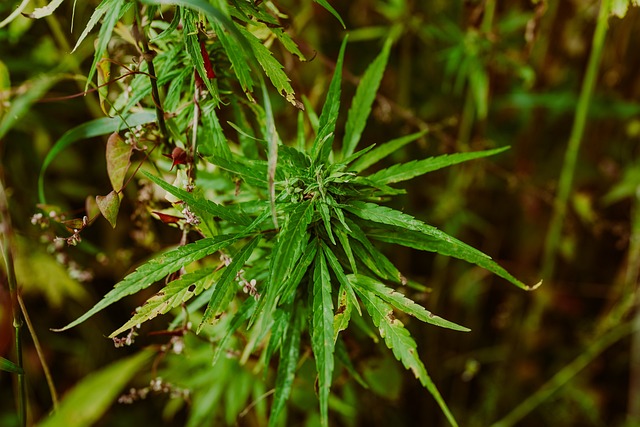Rhode Island has made history by legalizing THCA flower, a non-psychoactive cannabinoid found in raw cannabis that has garnered attention for its potential therapeutic benefits. This move positions Rhode Island as a pioneer in the U.S. for embracing this compound, which is distinct from Delta-9 THC and is accessible to residents in fresh and frozen form. The state's regulations allow for this product as long as it adheres to the 0.3% or less delta-9-THC limit defined by the 2018 Farm Bill. While Rhode Island has legalized medical marijuana, THCA's status is nuanced; it must be derived from hemp and contain no more than 0.3% THC to be considered legal under state law. As the legal landscape for cannabinoids evolves, consumers are advised to stay informed about both federal and state regulations regarding THCA to ensure compliance. The potential health benefits of THCA are being explored, with studies suggesting it may offer relief from various conditions such as arthritis and chemotherapy-induced nausea. However, users should exercise caution and start with low doses due to the possibility of side effects. It's also crucial to consult healthcare professionals, particularly for those with pre-existing health issues or who are on other medications, to avoid potential interactions. THCA's legal status in Rhode Island is a significant development for those interested in exploring its benefits responsibly and safely within the confines of the law.
Exploring the nuances of THCA flower within Rhode Island’s evolving legal framework, this article delves into the multifaceted implications of its emerging presence. As an alternative to its psychoactive counterpart, THC, THCA holds promise for various health applications while navigating the complexities of state legislation. We will unravel the distinctions between THCA and other cannabinoids, assess its legality in Rhode Island, and examine the potential benefits alongside its side effects. From understanding the entourage effect to recognizing the importance of quality control, this comprehensive guide addresses the intricacies of incorporating THCA flower into a wellness routine. Join us as we explore the scientific mechanisms behind THCA’s effects, real-life user experiences, and the future directions of research on this promising compound.
- THCA Flower: An Overview of Its Emerging Presence in Rhode Island's Legal Landscape
- What is THCA and How Does it Differ from Other Cannabinoids?
- The Legality of THCA Flower in Rhode Island: A Closer Look
- Potential Health Benefits and Side Effects of Consuming THCA Flower
- Understanding the Entourage Effect and THCA's Role in Hemp and Cannabis Products
- Precautions and Considerations When Using THCA Flower
THCA Flower: An Overview of Its Emerging Presence in Rhode Island's Legal Landscape
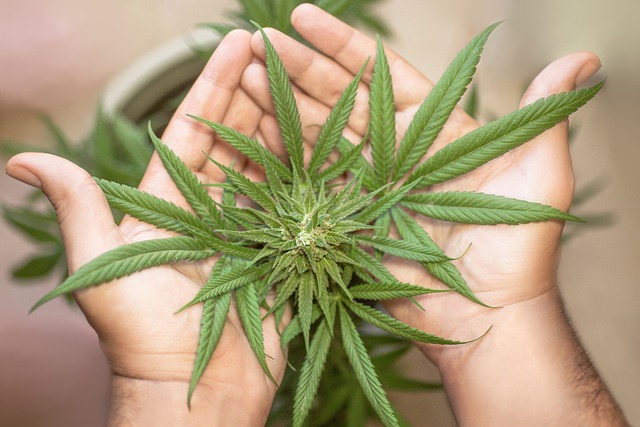
Rhode Island has recently seen the emergence of THCA flower as a legal entity within its evolving cannabis marketplace. The Trans-Tetrahydrocannabinolic Acid (THCA) is the raw, non-psychoactive precursor to Delta-9 THC, found in fresh and frozen cannabis trichomes. With the state’s legislative changes, Rhode Islanders now have access to this compound, which has garnered attention for its potential wellness benefits. The legal status of THCA flower is a reflection of the broader shift towards cannabis reform across the United States, positioning Rhode Island at the forefront of this transformative wave in the industry. Consumers interested in exploring the purported advantages of THCA can now do so within the confines of the law, as long as they adhere to the state’s regulations regarding cannabis products. This new chapter in Rhode Island’s legal landscape is not just a testament to evolving public sentiment but also an opportunity for further research into the potential therapeutic properties of THCA. As the market adapts to this change, it remains crucial for consumers to stay informed about the latest regulations and product offerings within the state’s legal cannabis framework. The availability of THCA flower in Rhode Island signifies a significant milestone in the normalization of cannabinoids and their derivatives, marking a new era for both patients and enthusiasts seeking out the benefits associated with this non-intoxicating compound.
What is THCA and How Does it Differ from Other Cannabinoids?

Tetrahydrocannabinolic acid A (THCA) is a non-psychoactive cannabinoid found naturally in the Cannabis sativa plant. Unlike its well-known psychoactive counterpart, delta-9-tetrahydrocannabinol (THC), THCA does not induce intoxication but has been studied for its potential therapeutic properties. THCA is one of over a hundred cannabinoids present in cannabis and is the precursor to THC through decarboxylation, a process that occurs when cannabis is heated. This decarboxylation transforms THCA into THC, leading to the psychoactive effects commonly associated with marijuana.
Legal considerations vary by jurisdiction, but as of the knowledge cutoff in 2023, THCA is legal in Rhode Island, provided it contains less than 0.3% delta-9-THC on a dry weight basis, adhering to the federal definition of hemp under the 2018 Farm Bill. This distinction from other cannabinoids like THC and CBD (cannabidiol) is significant in legal contexts, as it determines the legality of products containing these compounds. THCA’s non-psychoactive nature makes it a subject of interest for consumers seeking the potential health benefits without the ‘high’ associated with cannabis use. In Rhode Island, the regulatory landscape allows for a range of THCA-based products to be legally available, reflecting the evolving understanding and acceptance of cannabinoids in the therapeutic and wellness markets.
The Legality of THCA Flower in Rhode Island: A Closer Look
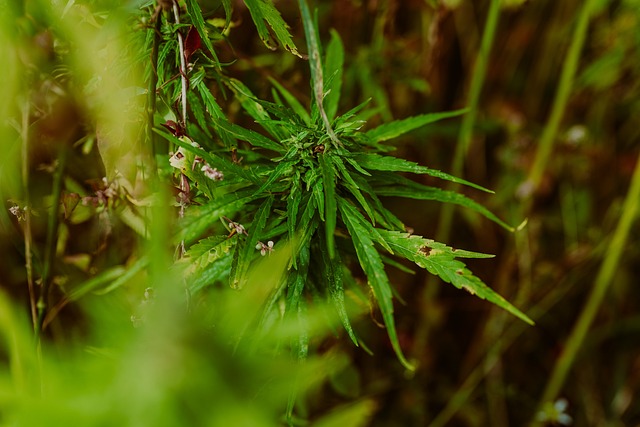
In recent years, the conversation around cannabinoids and their derivatives has become increasingly nuanced, with THCA, or Tetrahydrocannabinolic Acid, garnering attention for its potential therapeutic benefits. Rhode Island, like many other states in the U.S., has a complex legal landscape when it comes to cannabis and its various compounds. The legality of THCA flower in Rhode Island hinges on distinctions between hemp-derived and marijuana-derived products. Under the 2018 Farm Bill, hemp-derived products containing less than 0.3% THC are federally legal, which includes THCA as long as it is extracted from hemp. However, state laws in Rhode Island may impose stricter regulations. As of the knowledge cutoff date, Rhode Island has approved the use of medical marijuana, which includes THC in various forms but does not explicitly mention THCA. For a THCA flower to be legal under state law, it must be derived from hemp and contain no more than 0.3% THC. Consumers should be cautious and aware that state laws can change, and it is always advisable to consult local regulations or legal counsel to ensure compliance with both state and federal laws regarding THCA flower possession and use.
Navigating the legality of THCA flower in Rhode Island requires a clear understanding of both federal and state statutes. While the 2018 Farm Bill provides a framework for the legality of hemp-derived products, including THCA, at the federal level, states like Rhode Island have their own regulations that may differ significantly. The Rhode Island Department of Health sets guidelines for medical marijuana, which include THC but do not explicitly address THCA. This ambiguity can create confusion for consumers and retailers alike. It is essential for individuals to stay informed about the evolving legal status of cannabinoids like THCA in their state. As of the current legal standing, Rhode Islanders looking to legally access THCA flower must ensure that it is derived from hemp and complies with both state and federal guidelines on THC content.
Potential Health Benefits and Side Effects of Consuming THCA Flower
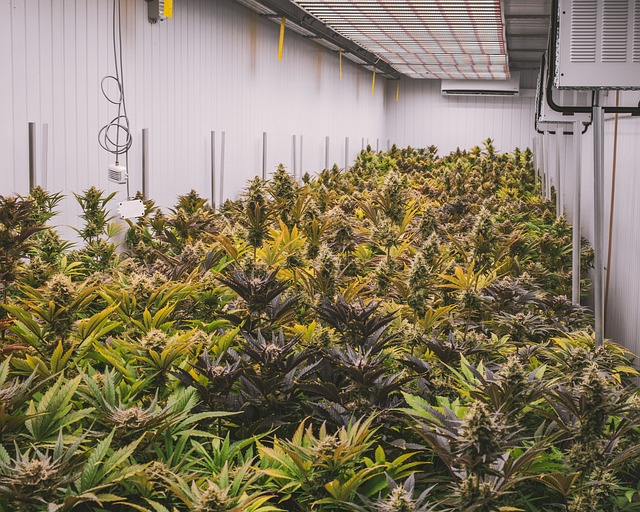
THCA, or tetrahydrocannabinolic acid, is a non-psychoactive cannabinoid found in the Cannabis sativa plant, which can transform into THC upon heating. As interest in the potential health benefits of cannabinoids grows, THCA has garnered attention for its therapeutic properties. Rhode Island’s legislation permits the use of THCA within certain legal frameworks, allowing residents to explore its effects responsibly. Preliminary research suggests that THCA may offer a range of health benefits, including anti-inflammatory, neuroprotective, and potential antiemetic properties. These benefits have been observed in various studies, offering hope for those seeking alternatives to traditional treatments for conditions like arthritis, multiple sclerosis, and nausea related to chemotherapy.
However, as with any substance, it’s important to be aware of its side effects. Consuming THCA flower can lead to certain adverse reactions in some individuals, particularly when used in high doses or combined with other substances. Side effects may include dizziness, lethargy, and alterations in mood or perception. It’s also worth noting that while THCA is legal in Rhode Island under specific regulations, the legal status can vary across different states and countries, emphasizing the need for awareness of local laws. Consumers should approach the use of THCA flower with caution, adhering to recommended dosages, and consulting healthcare professionals, especially if they have underlying health conditions or are taking other medications. Safety, compliance with regulations, and informed decision-making are paramount when considering the use of THCA for its potential health benefits.
Understanding the Entourage Effect and THCA's Role in Hemp and Cannabis Products
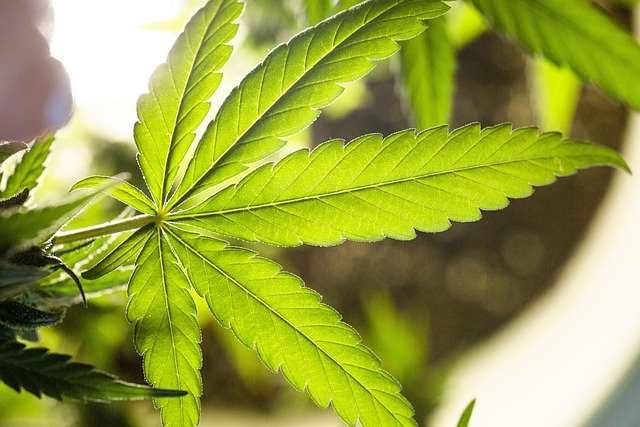
When exploring the intricacies of hemp and cannabis products, it’s crucial to delve into the complex interactions within these plants, including the entourage effect. This phenomenon refers to the synergistic impact of all the compounds found in cannabis, where the collective effect of the plant’s chemicals is greater than the sum of its individual components. Among these compounds, Tetrahydrocannabinolic Acid (THCA) plays a pivotal role. As one of the primary cannabinoids in raw cannabis and hemp flower, THCA is non-psychoactive but is converted into THC upon heating or decarboxylation. In its native form, THCA is being recognized for its potential therapeutic benefits, including anti-inflammatory and pain-relieving properties.
In Rhode Island, where the legal status of cannabis products is evolving, THCA is gaining attention for its presence in a variety of hemp-derived items that are compliant with state regulations. These include oils, tinctures, and topicals, where THCA is often highlighted due to its potential wellness benefits. Consumers interested in the effects of cannabinoids without the psychoactive impact of THC may find products containing THCA appealing. Understanding the entourage effect and how THCA contributes to it is essential for those seeking to harness the full therapeutic potential of hemp and cannabis products, especially as regulations continue to shape the legal landscape of these substances in Rhode Island and beyond.
Precautions and Considerations When Using THCA Flower
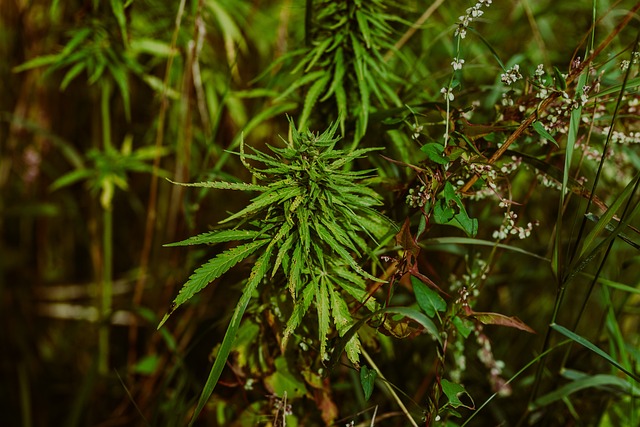
When exploring the use of THCA flower, it’s imperative to consider local legality as well as personal health implications. THCA, or Tetrahydrocannabinolic Acid, is a non-psychoactive cannabinoid found in raw cannabis plants and is precursor to THC. In Rhode Island, the legal status of THCA flower varies depending on its intended use and the specific regulations governing hemp-derived products. Users must ensure they are compliant with state laws that dictate allowed concentrations of THC in hemp products.
Precautions should be taken to avoid any potential side effects, as individual responses to cannabinoids can differ significantly. Consumers should start with a low dose to gauge their body’s reaction and avoid exceeding recommended serving sizes. It’s crucial to purchase THCA flower from reputable sources to ensure purity and safety. Additionally, individuals with pre-existing health conditions or those taking other medications should consult with a healthcare professional before incorporating THCA flower into their regimen, as cannabinoids can interact with various treatments. Monitoring the effects and maintaining awareness of the legal distinctions related to THCA in Rhode Island will help users navigate this realm responsibly and safely.
In conclusion, the emergence of THCA flower within Rhode Island’s legal framework presents a novel frontier for consumers and healthcare professionals alike. As outlined throughout this article, THCA, distinct from its psychoactive cousin THC, offers a range of potential health benefits alongside its legal status in Rhode Island. It’s crucial to approach its use with a clear understanding of both the entourage effect it contributes to and the side effects it may induce. While the full scope of THCA’s impact remains an area of ongoing research, current evidence suggests that when used responsibly and with appropriate cautionary measures in place, THCA flower can be a beneficial addition to one’s wellness regimen within the confines of the law. Prospective users are encouraged to consult healthcare professionals and adhere to state regulations regarding its consumption.
